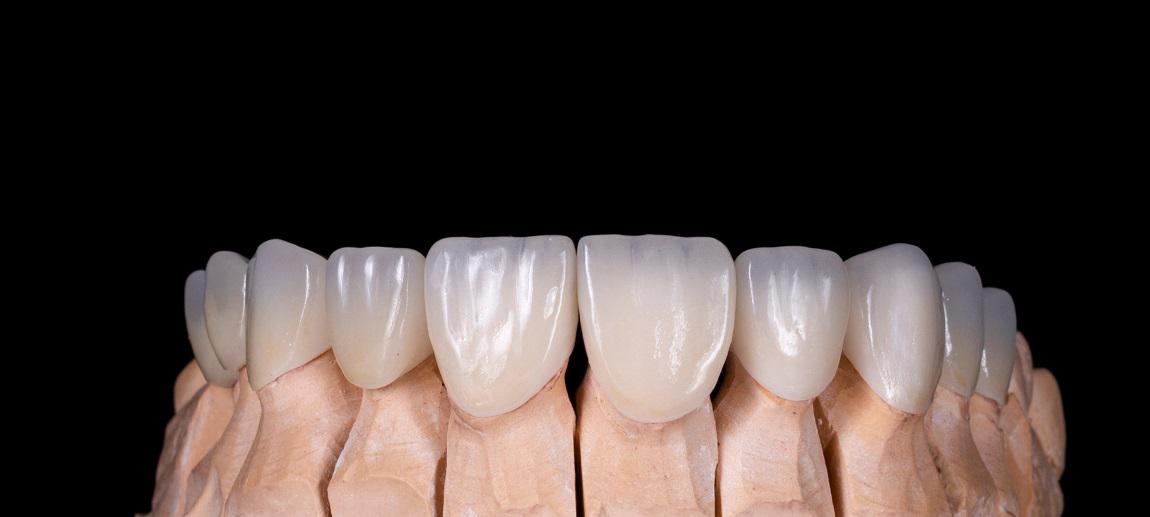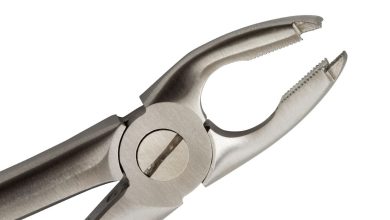Are Dental Crowns Necessary? Transforming Smiles with Confidence

Dental crowns may be necessary to restore damaged or weak teeth. They provide strength, support, and protection to preserve oral health and functionality.
Dental crowns play a vital role in maintaining the health and functionality of damaged or weak teeth. They are necessary when teeth have undergone significant damage, such as severe decay or fractures, and are at risk of further deterioration. These crowns offer a protective covering that strengthens the tooth and prevents further damage.
Additionally, they restore the aesthetic appearance of the tooth, improving the overall smile. Whether it is due to tooth decay, trauma, or cosmetic reasons, dental crowns are an essential treatment option to ensure the continued health and functionality of the tooth. With their ability to provide strength, support, and protection, dental crowns are a necessary solution for preserving oral health.
The Role Of Dental Crowns
html| Subheading | Role of Dental Crowns |
|---|---|
| Protecting and Strengthening Damaged Teeth | Dental crowns play a crucial role in protecting and strengthening damaged teeth. When a tooth is cracked or weakened, a dental crown provides a protective cover, preventing further damage and potential tooth loss. By encasing the entire tooth, it restores its natural shape, size, and appearance, ensuring proper functionality and aesthetics. |
| Restoring Cracked or Broken Teeth | A dental crown is often necessary to restore cracked or broken teeth. The crown acts as a cap that covers the damaged tooth and provides strength, stability, and protection. Moreover, it helps to distribute the biting force evenly, reducing the risk of further damage and improving overall oral health. |
| Supporting Teeth After Root Canal Treatment | Following root canal treatment, dental crowns play a vital role in supporting the affected tooth. Root canal treatment can leave the tooth weak and vulnerable to fractures. By placing a dental crown over the treated tooth, it not only adds reinforcement but also ensures long-term durability. |
Factors To Consider For Dental Crowns
Evaluation of Tooth Structure:
Dental crowns are a common dental treatment used to restore damaged or decayed teeth. The first step in determining the need for a dental crown is evaluating the tooth structure. This involves a thorough examination of the tooth to assess the extent of damage and decay. X-rays may also be taken to get a better view of the tooth.
Assessing the Suitability of Dental Crowns:
Factors such as the amount of remaining tooth structure, the location of the tooth in the mouth, and the patient’s oral hygiene habits are considered when determining the suitability of a dental crown. If there is enough healthy tooth structure remaining, a dental crown may be a suitable option for restoring the tooth’s function and appearance.
Understanding the Different Types of Dental Crowns:
| Type of Dental Crown | Advantages | Disadvantages |
|---|---|---|
| Metal Crown | Durable and long-lasting | Visible gold or silver color |
| Porcelain-Fused-to-Metal Crown | Natural-looking appearance | Potential for chipping or cracking |
| All-Ceramic Crown | Highly aesthetic | Less durable than metal crowns |
The choice of dental crown material depends on factors such as the location of the tooth, the patient’s preferences, and the dentist’s recommendation.
Overall, dental crowns can be a necessary treatment for restoring damaged or decayed teeth. A thorough evaluation of the tooth structure, consideration of various factors, and understanding the different types of dental crowns can help determine the best course of action for each individual patient.
The Dental Crown Procedure
The dental crown procedure involves several steps to ensure proper placement and functionality. The first step is preparing the tooth for crown placement. This involves reshaping the tooth by removing a portion of its outer layer to create space for the crown. A temporary crown is then placed to protect the tooth while the permanent crown is being made. Temporary crowns are important as they help maintain the shape and stability of the prepared tooth. Once the permanent crown is ready, it is carefully positioned and adjusted for a precise fit. The final crown placement process usually requires the use of dental cement and gentle pressure to ensure the crown is securely attached to the tooth. Overall, dental crowns are necessary in certain situations to restore the function and appearance of damaged or weakened teeth.
Maintaining Dental Crowns
Maintaining Dental Crowns
Proper Oral Hygiene and Its Impact on Dental Crowns
Proper oral hygiene is crucial for preserving the longevity and functionality of dental crowns. Brushing twice daily with a soft-bristled toothbrush and a fluoride toothpaste helps remove plaque and prevent dental issues that can compromise the integrity of crowns. Flossing daily also plays a vital role in maintaining dental crowns by removing plaque and food debris from areas that are difficult to reach with a toothbrush. Avoiding sticky and sugary foods helps minimize the risk of damage or decay near the crown. Additionally, wearing a mouthguard during activities that may cause dental trauma, such as sports, can protect dental crowns from fractures or dislodgment.
Lifestyle Habits to Preserve Dental Crowns
Several lifestyle habits can aid in preserving dental crowns for a longer duration. Avoiding teeth grinding can prevent excessive strain on the crowns, helping to maintain their structural integrity. Quitting smoking is another beneficial lifestyle change as smoking can stain and weaken the crown material. Moderate consumption of staining beverages such as coffee, tea, and red wine can also help protect the appearance and durability of dental crowns.
Regular Check-ups and Professional Cleanings
Scheduling regular check-ups with a dentist and undergoing professional cleanings are essential for the longevity of dental crowns. During these visits, the dentist can evaluate the condition of the crowns and identify any potential issues early on. Professional cleanings remove stubborn plaque or tartar buildup that cannot be effectively removed through regular brushing and flossing. This helps maintain the health of the surrounding gums and prevents any bacteria-related complications that can compromise the stability of dental crowns.
Enhancing Confidence Through Dental Crowns
Restoring a beautiful smile and boosting self-esteem go hand in hand, and dental crowns play a crucial role in achieving these desirable outcomes. Dental crowns are not just a necessity but also a game-changer for those struggling with misaligned or discolored teeth. By addressing these concerns, dental crowns can help individuals regain their confidence and restore their smile.
Dental crowns offer long-lasting results, ensuring a quality of life improvement for individuals seeking to enhance their overall oral health. With the ability to address various dental conditions, including tooth decay, cracks, and chips, dental crowns provide both functional and aesthetic benefits. By covering the entire tooth, dental crowns not only protect the damaged tooth but also blend seamlessly with the surrounding teeth, providing a natural-looking smile.
Investing in dental crowns can significantly improve an individual’s confidence and self-esteem by creating a beautiful and healthy smile. Don’t hesitate to consult with a qualified dental professional to determine if dental crowns are the right solution for your oral health needs.

Credit: pittsburghsmilemakeover.com
Frequently Asked Questions On Are Dental Crowns Necessary?
What Happens If You Don’t Do A Crown?
Not getting a crown can result in further damage to your tooth, including fractures and decay. It may also lead to increased sensitivity and pain, making it harder to eat and speak comfortably. Consequently, delaying or avoiding a crown can lead to more extensive and costly dental treatments in the future.
Do I Really Need A Dental Crown?
Yes, you may need a dental crown to restore a tooth that is damaged, cracked, or decayed. A dental crown can strengthen the tooth, improve its appearance, and prevent further damage. It is best to consult with your dentist to determine if a dental crown is necessary for your specific situation.
Can I Avoid A Dental Crown?
Yes, you may be able to avoid a dental crown depending on the specific condition of your tooth. It’s important to consult with your dentist who can evaluate your oral health and recommend the most suitable treatment options for you.
Why Do Dentists Push For Crowns?
Dentists recommend crowns to protect and restore damaged teeth, prevent further decay, and improve oral health. It helps strengthen weak teeth, covers and supports dental implants or bridges, and enhances the appearance of damaged or discolored teeth.
Conclusion
So, are dental crowns necessary? The answer depends on several factors, such as the condition of your teeth and the extent of damage or decay. Dental crowns play a crucial role in restoring the strength, function, and appearance of your teeth.
Consult with your dentist to determine if dental crowns are the right solution for your oral health needs. Don’t hesitate to take the necessary steps to maintain a healthy and beautiful smile.



